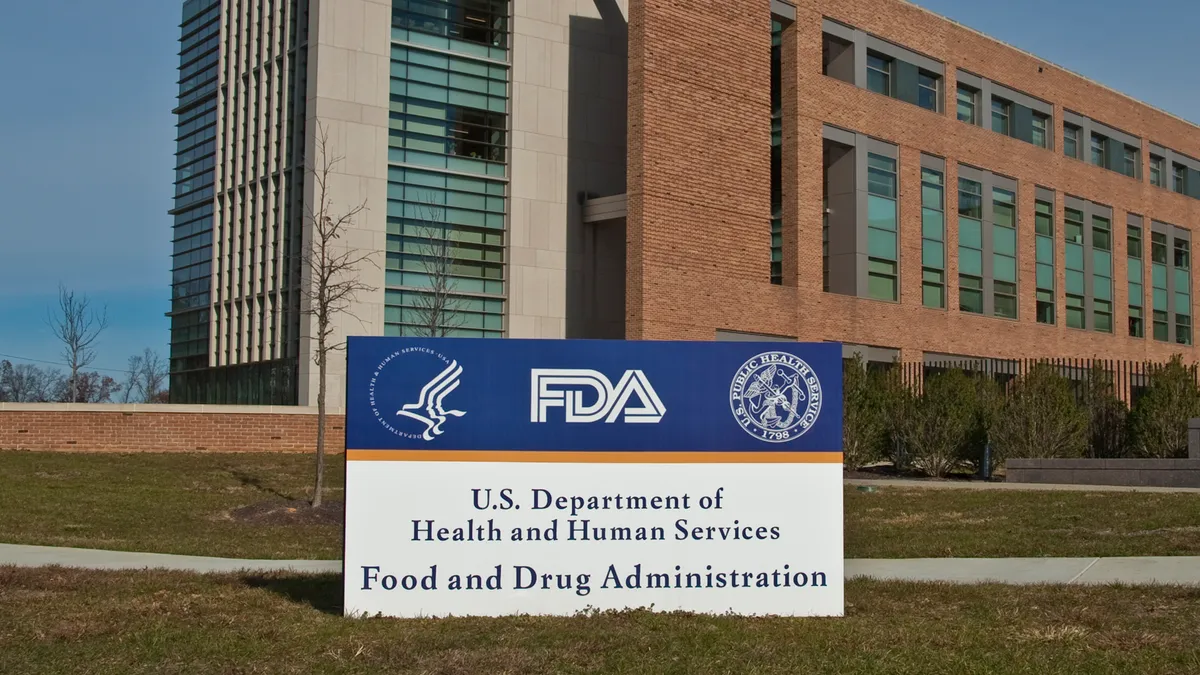Dive Brief:
- FDA has responded to comments on an information collection process related to De Novo classification proposed in 2017. Overall, the agency disagreed with many of the changes suggested and appeared largely to be sticking to its original plan.
- A draft guidance laid out the procedures and criteria FDA intends to use in assessing whether a De Novo classification request should be accepted for substantive review.
- The guidance discusses De Novo acceptance review policies and procedures, “Refuse to Accept” principles, and elements of the De Novo Acceptance Checklist and the Recommended Content Checklist.
Dive Insight:
FDA’s draft guidance was developed in response to a directive of the Medical Device User Fee Amendments of 2017. The agency said it expects to receive about 60 De Novo requests per year.
FDA has been trying to encourage manufacturers to use the De Novo pathway for new medical devices and lessen reliance on older 510(k) predicate devices. The agency could establish new predicate devices if more manufacturers use the De Novo pathway. The 510(k) process has been called flawed by experts at the Institute of Medicine commissioned by the agency to determine whether it is adequate to ensure safety and effectiveness of devices.
FDA has said previously it aims to make the pathway more efficient and transparent by clarifying submission requirements and review processes.
AdvaMed has found fault with parts of FDA’s De Novo model in the past, namely the agency’s plan to conduct facilities inspections before making a De Novo decision for a device. The medical device lobby has also called on FDA to clarify proposed requirements for submitting studies and other data.
In its comments on FDA’s 2017 draft guidance, AdvaMed said the proposal should more fully explain the preliminary questions reviewers intend to consider. Many of these questions lack detail that would inform answers and actions that should follow, the medical device lobby said.
In its response to a general comment on preliminary questions, in which it does not identify the commenters, FDA said it believes its instructions for questions within the checklist in Appendix A clearly state that “Boxes checked in this section represent FDAs preliminary assessment of these questions at the time of administrative review.”
FDA also said it disagreed with suggestions that revisions were needed regarding information to be included on clinical studies, whether those trials were conducted within or outside of the United States.
The agency responded to a comment about how to request missing checklist items by describing at length why it believes its recommendations in the guidance are consistent with a “least burdensome” approach to collecting information efficiently.
The agency said it estimates that it will take about one hour to prepare an Acceptance Checklist and one hour to prepare a Recommended Content Checklist. The total cost burden for a De Novo submission is estimated to be $121.30 ($90 printing + $30 shipping + $1.30 electronic copy).










